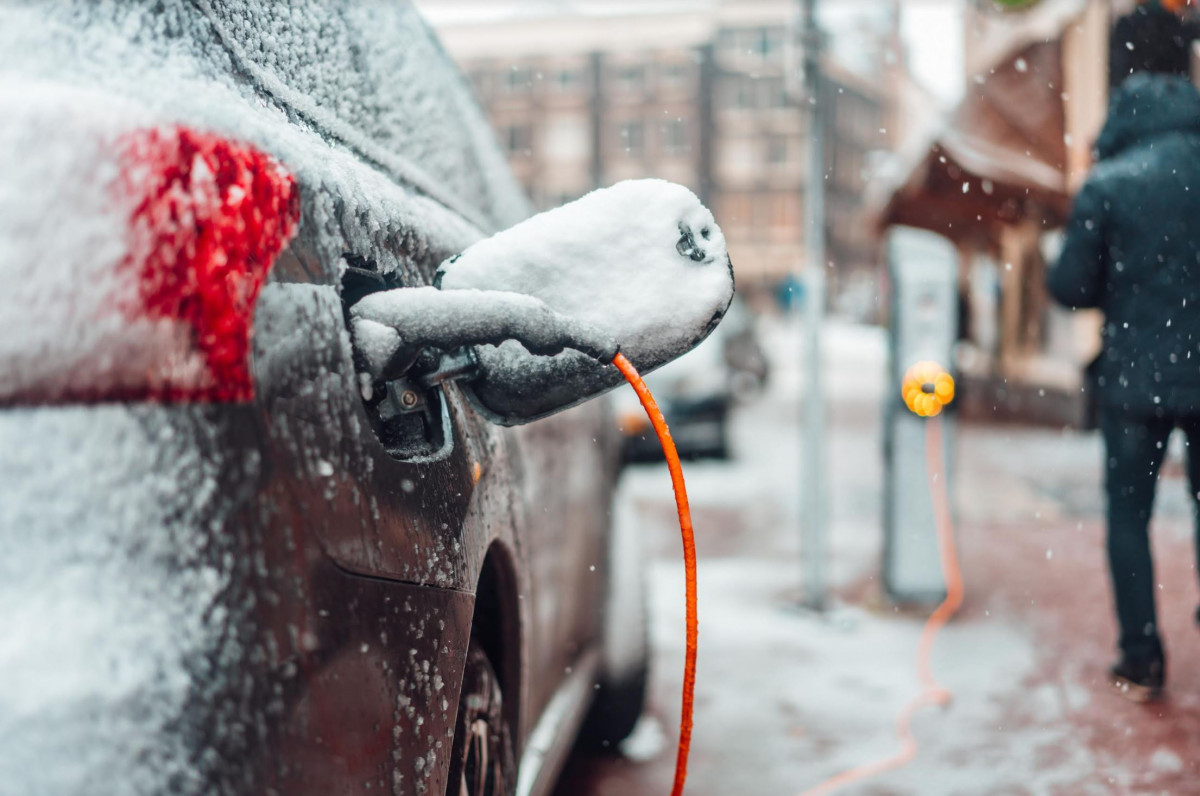
European Metals Holdings Limited (ASX:EMH; AIM:EMH; NASDAQ:ERPNF) is currently developing the fully integrated Cinovec lithium, tin, tungsten deposit located in the northern Czech Republic.
This is the largest hard rock lithium resource in the European Union.
EMH provides a compelling play in the green energy materials sector, particularly given the location of its Cinovec Project, which is not only strategically positioned in terms of its potential client base, but also benefits from being situated in a mining friendly jurisdiction.
The location is also prime real estate in the electric vehicle (EV) revolution.
The EU is rapidly switching from petrol transport to EVs, as part of the “European Green Deal” which plans to make Europe carbon neutral by 2050.
€750BN has been allocated to generous EV subsidies, alongside penalties for CO2 emissions.
This transition in energy consumption and use has become a key driver of the need for a local source of lithium.
The EU currently has no local supply and requires imports from China and South America.
A significantly sized lithium industry is about to emerge in the EU, with EMH well placed to capture a significant portion of this market share.
The EU is aiming for 80% local lithium production by 2025.
EMH’s Cinovec project is located in the northern Czech Republic, in the epicentre of over a dozen new and planned lithium-ion battery factories, on the doorstep of dozens of potential customers.
Geomet s.r.o. controls the Cinovec project’s mineral rights and is owned by EMH (49%) and CEZ (51%).
CEZ is the seventh largest European Union power utility by customers and the tenth biggest by market cap (US$13 billion), domiciled in the Czech Republic.
The Czech Republic Government is CEZ’s largest shareholder with a 70% stake in the group.
CEZ has a balance sheet of €28 billion, and a clear strategic need to ensure EMH’s project moves into production.
EMH intends to supply a minimum of 25,267 tpa of lithium hydroxide or 22,500 tpa of lithium carbonate over the long term.
About the Cinovec Project
The Cinovec deposit is covered by three Exploration Permits and three Preliminary Mining Permits (PMP) that cover a combined area of nearly 19 square kilometres.
EMH’s strategy is to combine the three permits and progress the mine permitting and environmental studies that will support the proposed definitive feasibility study (DFS).
As illustrated below, Cinovec is by far the largest hard rock lithium project in Europe.
The deposit also contains a globally significant tin resource, and this is fully funded through to Final Investment Decision, expected early 2022.
The Cinovec deposit is covered by three Exploration Permits and three Preliminary Mining Permits (PMP) that cover a combined area of nearly 19 square kilometres.
EMH’s strategy is to combine the three permits and progress the mine permitting and environmental studies that will support the proposed definitive feasibility study (DFS).
In short:
Cinovec hosts a hard rock lithium deposit with:
- a total Indicated Mineral Resource of 372.4 million tonnes at 0.45% Li2O and 0.04% Sn and
- an Inferred Mineral Resource of 323.5 million tonnes at 0.39% Li2O and 0.04% Sn.
The deposit contains a combined 7.22 million tonnes of Lithium Carbonate Equivalent and 263kt of tin.
An initial Probable Ore Reserve of 34.5 million tonnes at 0.65% Li2O and 0.09% has been declared to cover the first 20 years mining at an output of 22,500 tonnes per annum of lithium carbonate.
Could EMH meet supply demands?
Independent industry analyst Roskill is expecting demand for lithium next year to increase significantly with carbonate to reach 165,000 tonnes LCE, up from 139,000 tonnes in 2020, while demand for hydroxide should total 132,000 tonnes LCE.
EMH expects to commence production in 2024 as the supply/demand dynamics for the battery grade hydroxide market look set to drive prices higher.
The demand side of the equation will be driven by an increase in CO2 compliance in the European Union that will commence in 2025.
The European Union is committed to investing 550 billion Euro in climate change initiatives between 2021 and 2027.
Of further significance for EMH is the goal of becoming self-sufficient in terms of lithium production, and by 2025 regulatory bodies are aiming for 80% regional production.
Further initiatives include the establishment of a 40 billion Euro Just Transition Fund aimed at assisting in the transition from fossil fuels to green energy.
High profile end-users such as Tesla, Samsung and Volkswagen are already on the move, and they are at various stages of increasing/adapting capacity to cater for an uptick in demand for electric vehicles and the broader power storage sector – note Cinovec’s central proximity to its potential clients.
European Metals could become a compelling play in the green energy materials sector, particularly given the location of the Cinovec Project and its strategic position in terms of its potential client base.
A focus on ESG
While ESG is focused on delivering a sustainable lithium product to the European market, it is also doing its ESG (environmental, social, governance) credential no harm.
EMH has adopted a set of ESG metrics and disclosures as released by the World Economic Forum (WEF) and is reporting their quarterly progress on ESG metrics.
The single roast, low heat process outlined in the PFS minimises the use of power, and a combination of recycled water and the use of benign reagents adds up to environmentally friendly production.
The application of EMH’s process also provides the company with options to produce battery grade lithium carbonate or lithium hydroxide, opening up multiple markets and which translates to client diversification.
What to expect
There are several potential share price catalysts that could help the company re-rate in the near to medium-term.
This includes the completion of a definitive feasibility study (DFS) which should occur in the next 12 months.
With EMH sending samples to potential customers in 2021, there is the likelihood of end users negotiating offtake agreements, particularly given that analysts are already predicting supply constraints.
Disclaimer– This content was produced and paid for by StocksDigital. The author may hold positions in the stocks mentioned in this publication, at the time of writing. The information contained in the publication and the links shared are general in nature and does not take into account your personal situation. You should consider whether the information is appropriate to your needs, and where appropriate, seek professional advice from a financial adviser. For errors that warrant correction please contact the editor at [email protected].
Strawman is Australia’s premier online investment club. Join for free to access independent & actionable recommendations from proven private investors.
© 2021 Strawman Pty Ltd. All rights reserved.
| Privacy Policy | Terms of Service | Financial Services Guide |
ACN: 610 908 211







